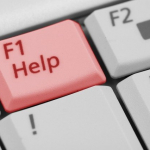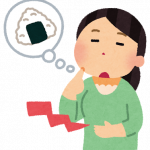What does “dasai” mean? What does it mean in English?ださい

Perhaps many Japanese would be displeased when they are described as “dasai(ださい、ダサい)”.
The word spr ...
What does “Okan” mean? オカン

“Okan(オカン)” means “mother” in the Kinki dialect, and is mainly used by sons for their own mot ...
What does “hayaku” mean? はやく 早く 速く

Hayaku!
はやく!
Narubeku hayaku onegaishimasu.
なるべく早くお願いします。
Sore hayaku itte hoshikatta. ...
What does “seyakedo” mean? What in English? せやけど

Occasionally, the word “seyakedo(せやけど)” appears in Japanese conversations. It is especially common in the ...
What does “Tasukete” mean? What in English? 助けて

“Tasukete …”
This is a word that every Japanese knows, and it can be heard anywhere, in a formal or ...
What does “Otasuke” mean? お助け

“Otasuke(おたすけ、お助け)” is a noun “tasuke(助け)” added the prefix “o(お)” which indicate ...
What does “gokurousama” mean? ご苦労さま

The Japanese sometimes say to someone who has done some tasks or did some work as follows:
“Gokurousama(ご ...
What does “mendoi” mean? What is it in English? めんどい

Benkyou wo suruno ga meindoi
勉強をするのがめんどい。
Heya no katazuke wa itsumo mendoi.
部屋のかたづけはいつもめんどい。
Son ...
What do “Onaka ga suita” and “Hara ga hetta” mean? Japanese おなかがすいた

While spending time with the Japanese, they sometimes say the followings:
Onaka suita —.
お腹すいたー。
What does “emoi” mean? エモい

The word “emoi(エモい)” has been used among young people recently.
Have you ever heard of it?
Actually, it see ...